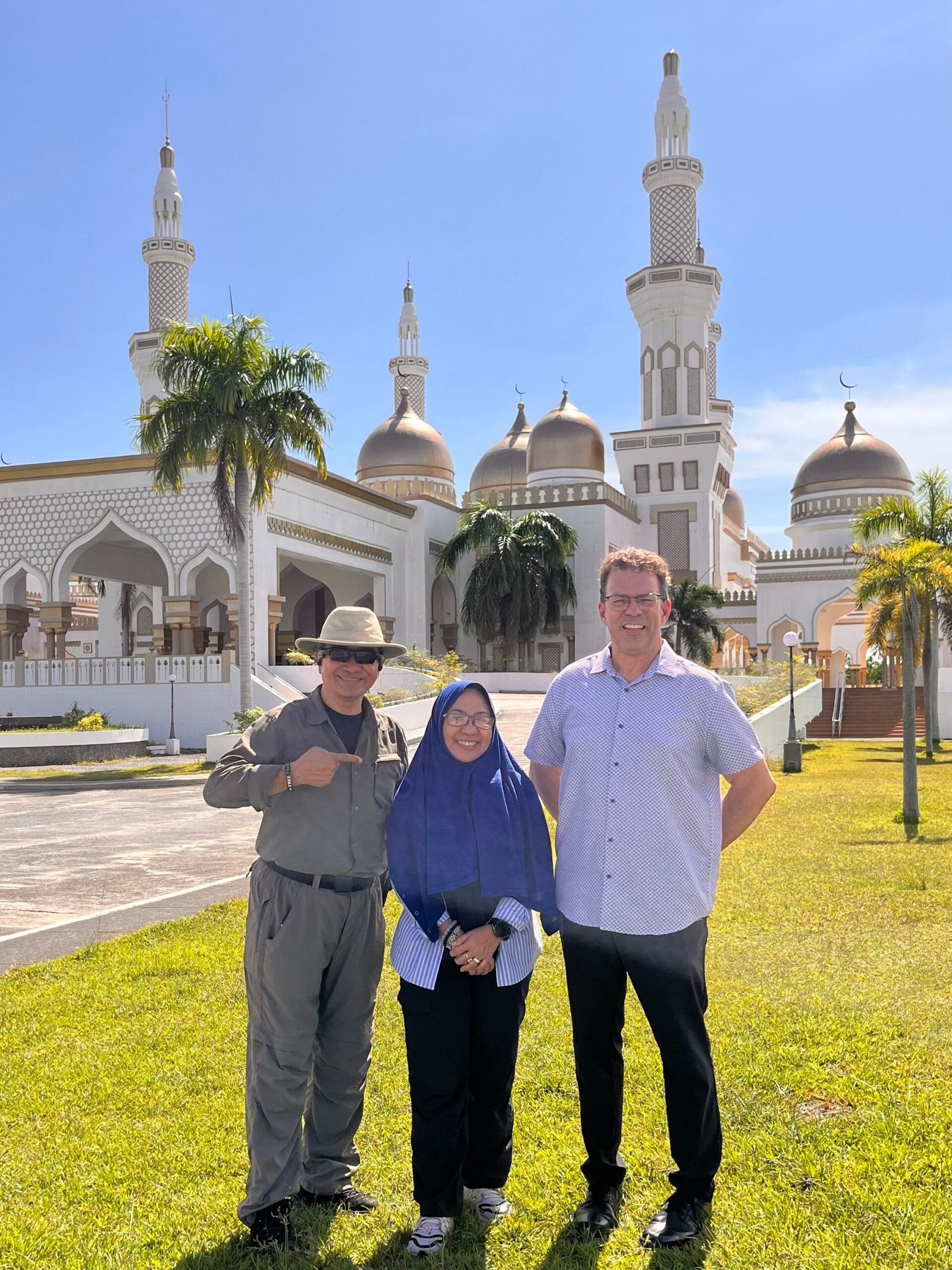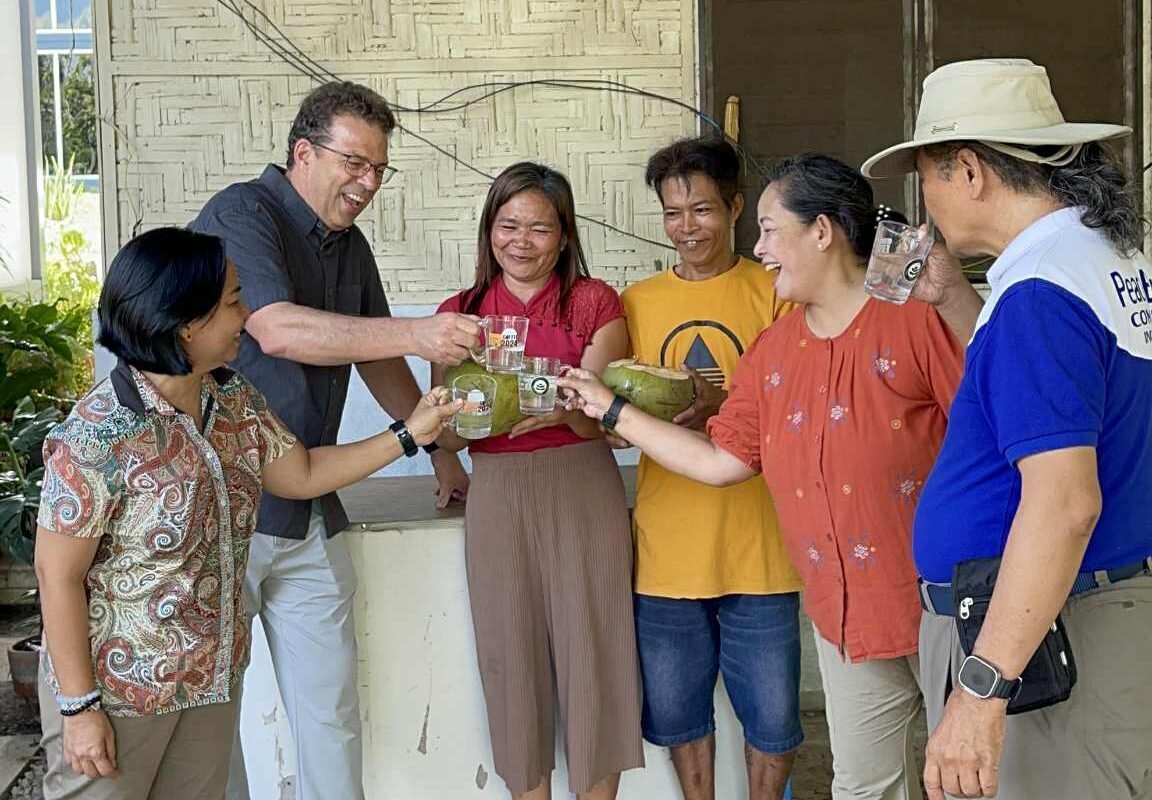HEAD OF OUR CANADIAN PARTNER-COMPANION VISITS MINDANAO FIELD
Last 04-06 August 2024, Doug Klassen—the Executive Minister of Mennonite Church Canada (MCCanada) and a long-term partner-companion of Coffee for Peace—made a significant visit to Mindanao. His purpose was not routine oversight, but to walk alongside PeaceBuilders Community, Inc. (PBCI) and Coffee for Peace (CFP) as a friend and companion in inclusive development and social entrepreneurial peacebuilding.
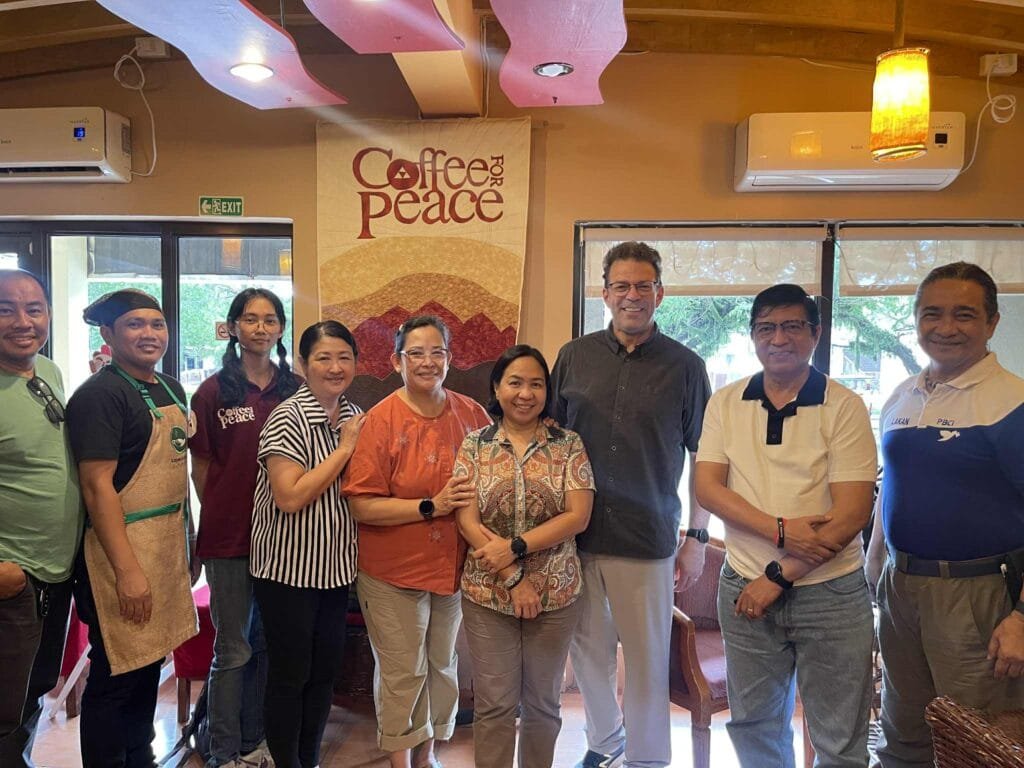
Day 1 – Connection, Compassion, and Community in Davao City
He began his visit immersed in the sensory and relational warmth of the field: enjoying breakfast with CFP staff and baristas as Joji Pantoja (Chair and CEO) reminded him, “This coffee isn’t just for CFP communities’ livelihood… It’s one of their significant bridges to people who used to be their enemies.”
Doug’s presence was gentle but meaningful: “I’m not here to supervise,” he told the staff, “I’m here as a friend, as an equal… stuff like these make a difference and eventually transforms the world.”
Later, over lunch with PBCI staff, conversations flowed—from farmers’ successes to grassroots peacebuilding efforts—reflecting how small reconciliations can ripple outward like quiet waves. That afternoon, Doug met with Executive-in-Training Bennette Grace Tenecio-Mañulit—an encounter part mentoring, part heartfelt communion. The day closed with dinner alongside the Mindanao PeaceWeavers leadership, a time where strategy and storytelling intertwined, weaving together present realities and shared aspirations for just, lasting peace.
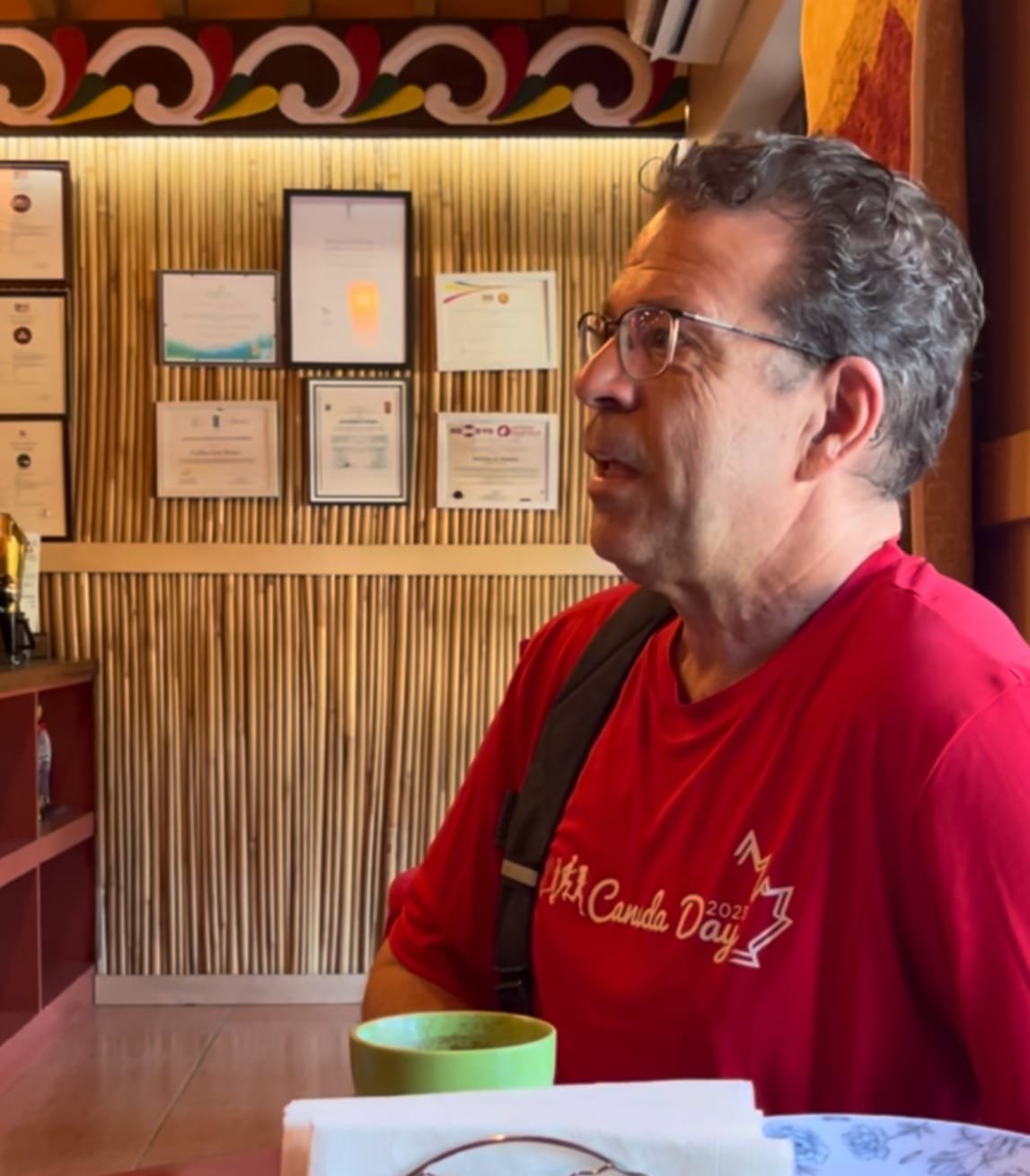
Day 2 – Listening to the Peace Process and Traditional Voices
Before dawn, the group departed for Camp Darapanan, the headquarters of the Moro Islamic Liberation Front (MILF). Welcomed by warmth and hospitality, Doug heard directly from senior MILF spokesperson Hon. Von Alhaq and peace leader Hon. Anwar Alamada. They spoke of normalization—the transformation of conflict-affected communities into safe, just, and self-governing societies—and decommissioning—the transition of armed groups into peaceful civilian life, emphasizing that the former must precede and support the latter.
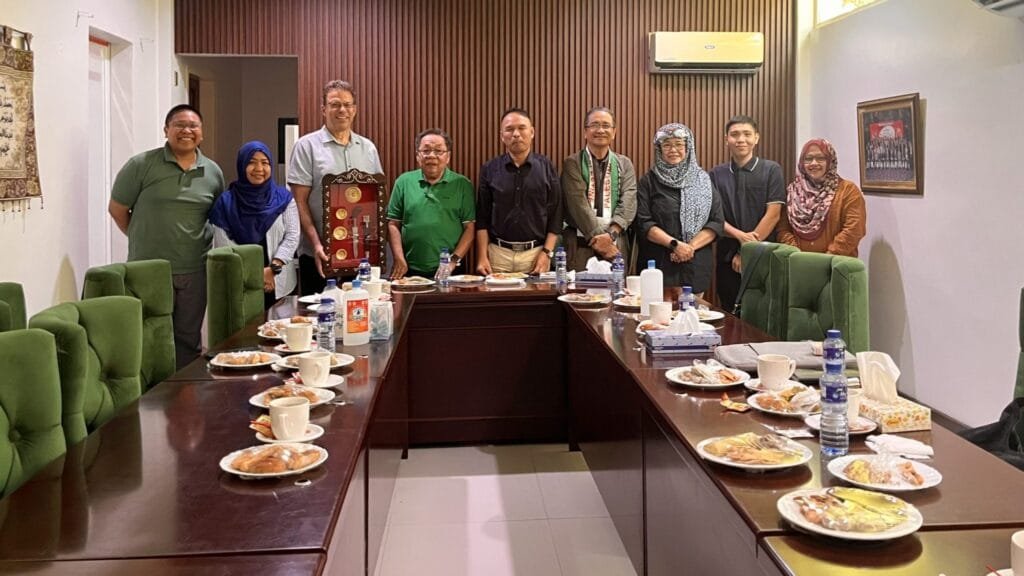
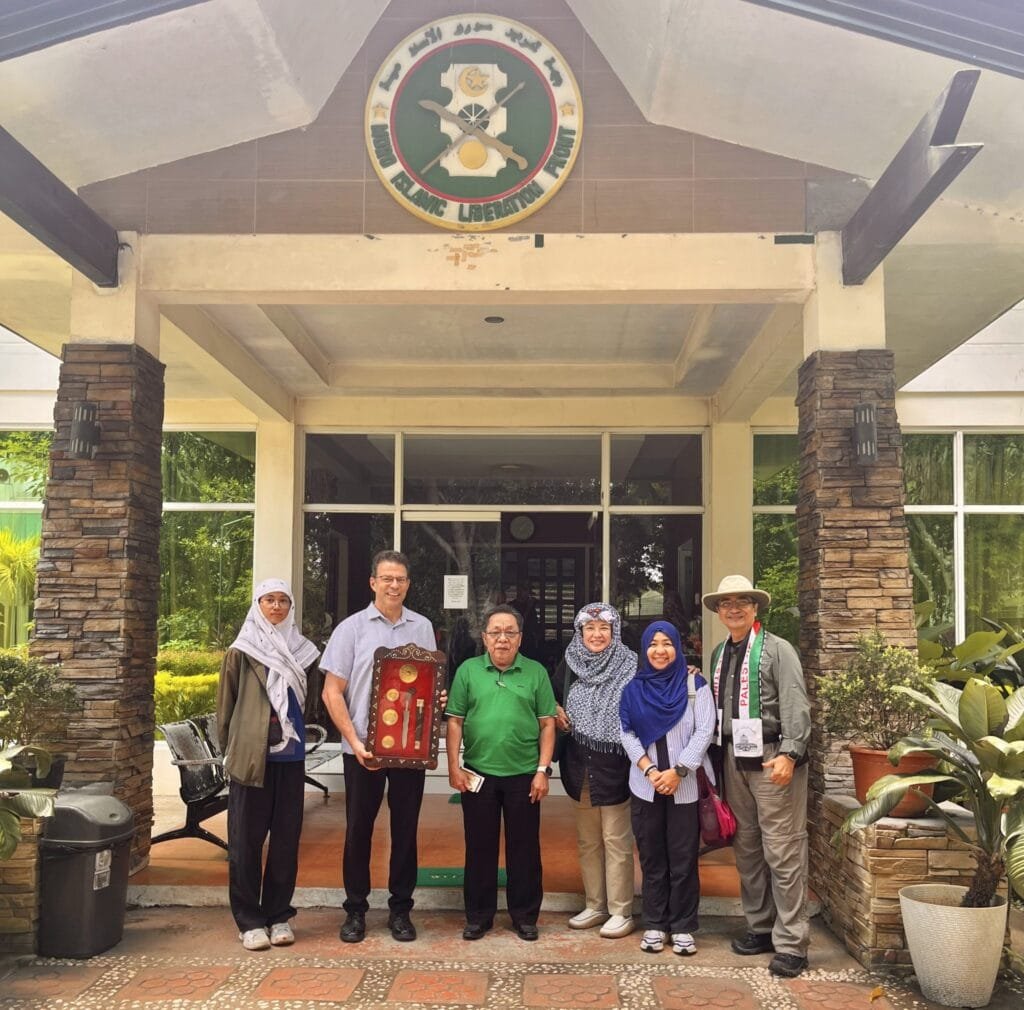
Later, in Cotabato City, Doug shared a lunch with Datu Haron Al-Rasheed Baraguir, a senior official in engineering and one of PBCI’s early cross-cultural guides. Datu Haron reflected on his father’s legacy—“peace must honor the dignity of our ancestors and the dreams of our children”—continuing a legacy of hospitality, bridge-building, and cultural respect that has shaped PBCI’s cross-cultural relationships since the early 2000s.
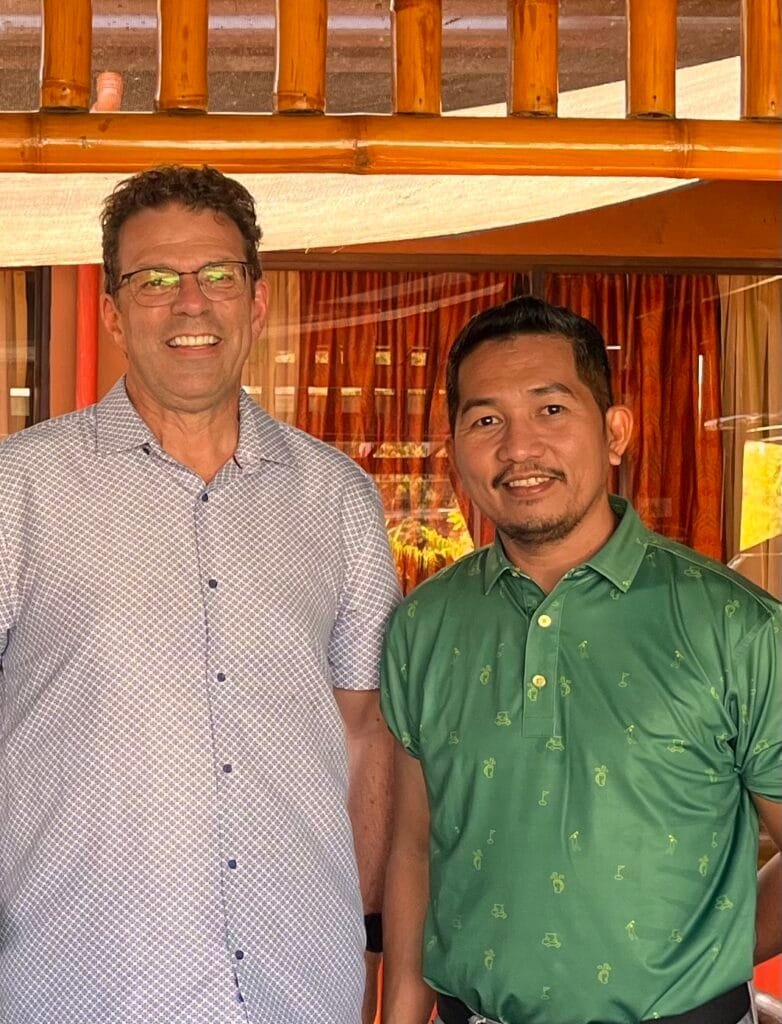
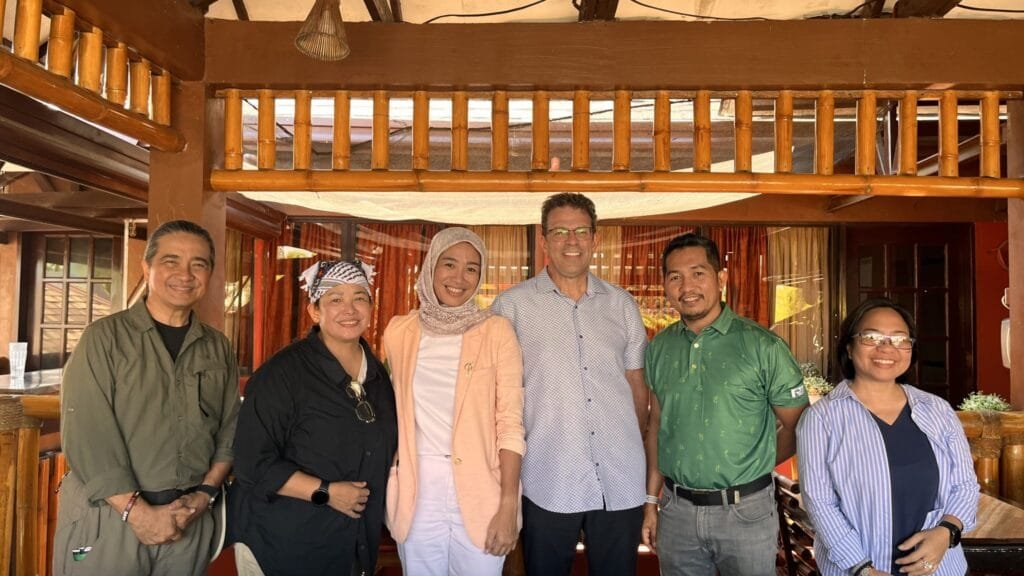
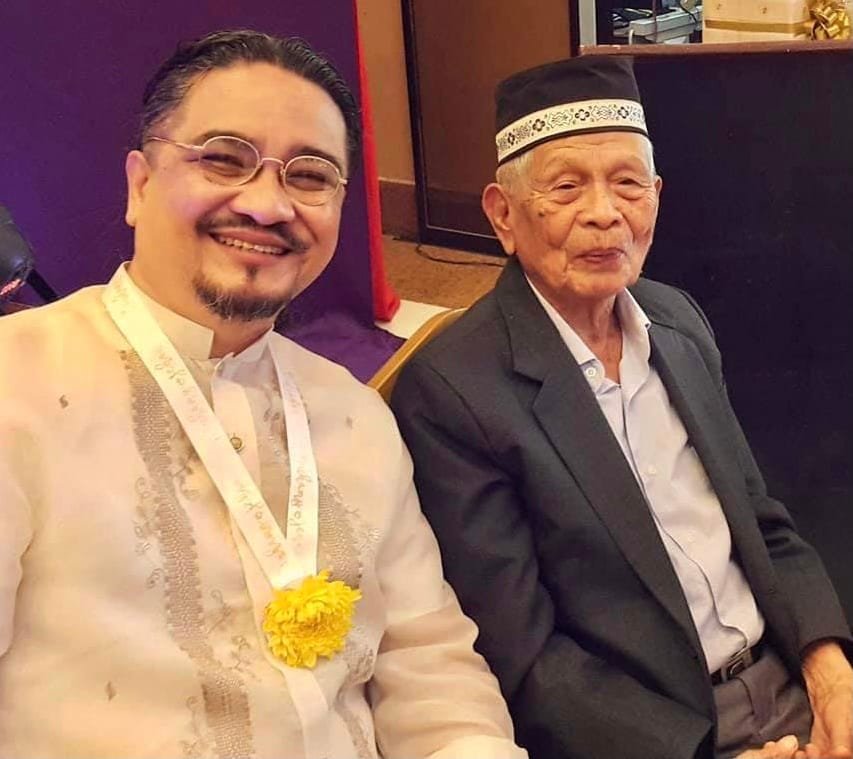
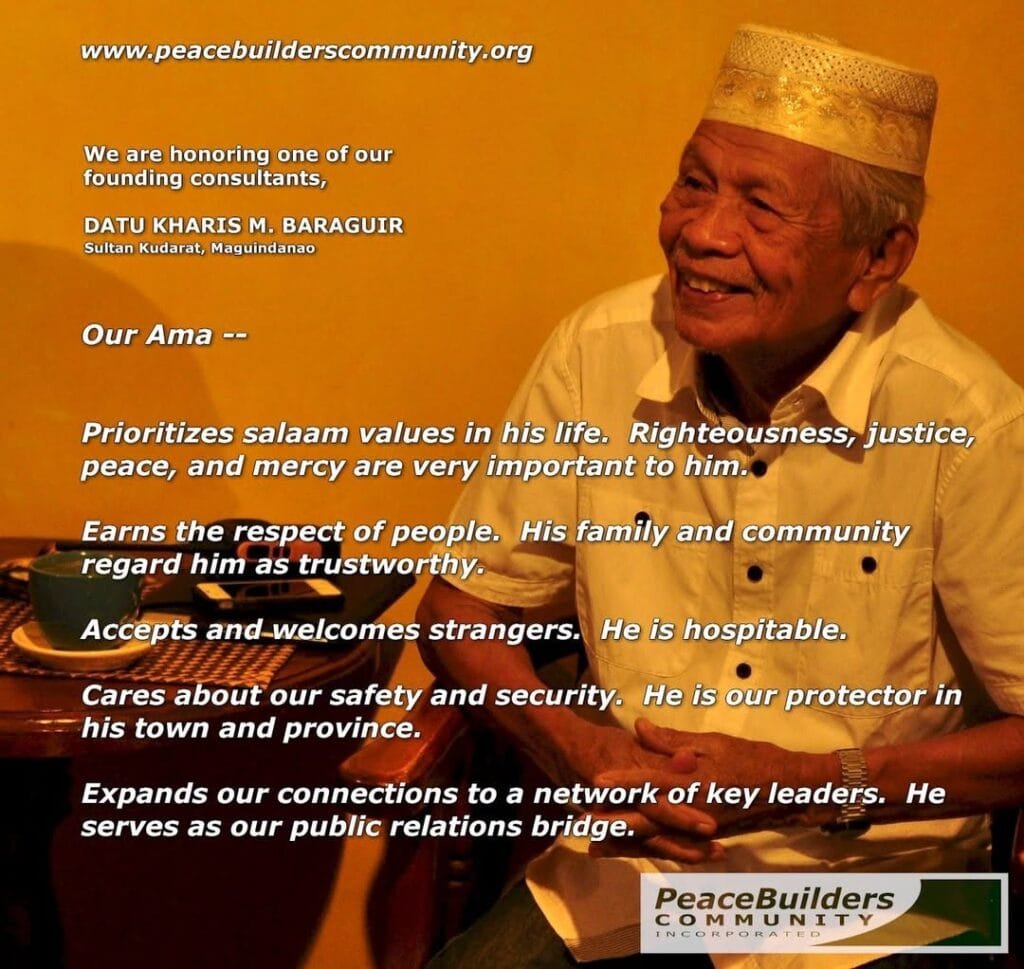
Day 3 – Empowerment, Heritage, and Quiet Reflection
The final day brought Doug to the Malipayon Peace Hub (MPH) in Bansalan, Davao del Sur, a community-based space where coffee, culture, and peacebuilding converge. There, over breakfast with the Hub team, Rosie Malik Gonzaga—Team Leader and Custodian of MPH, a Bagobo Tagabawa woman—said simply, “Before coffee, we had only survival. Now we have hope.” Her leadership bridges ancestral wisdom and contemporary sustainable development.
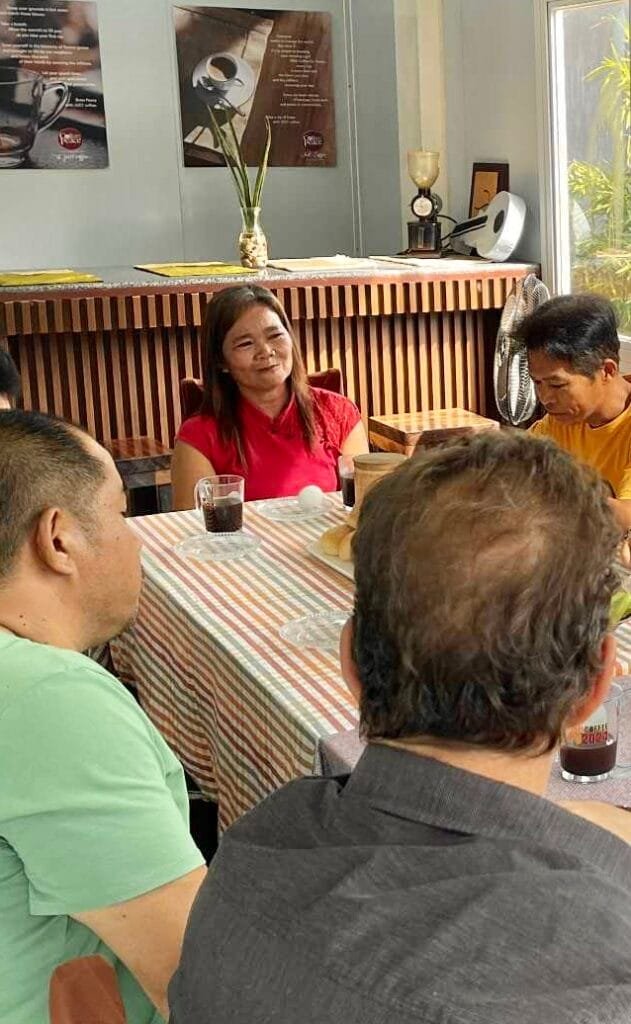
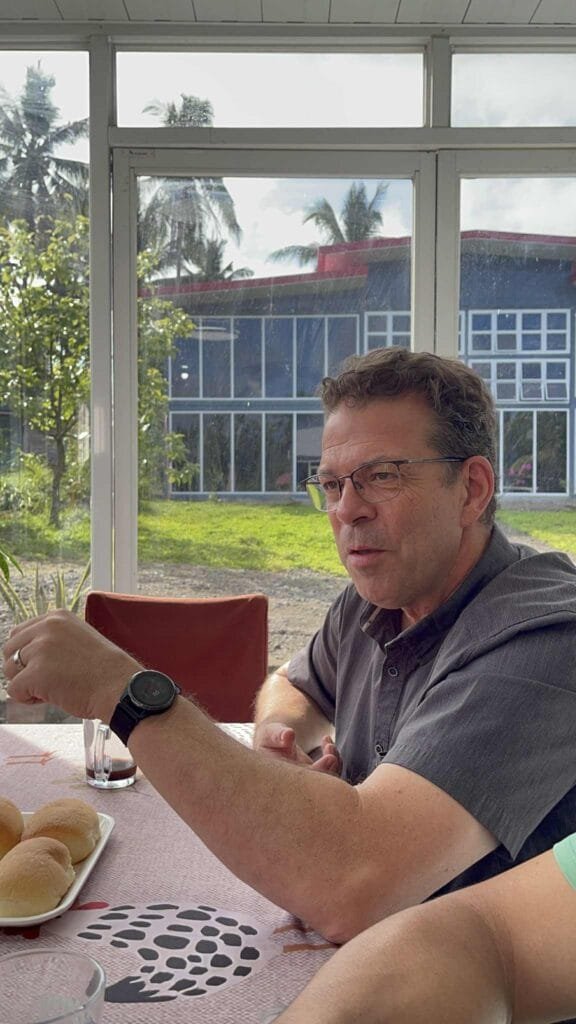
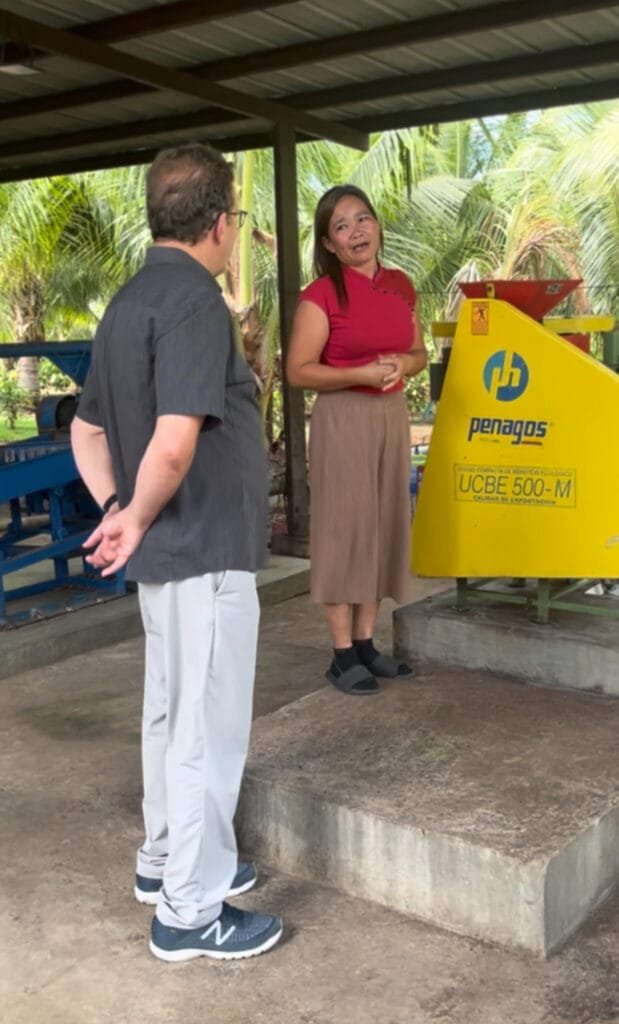
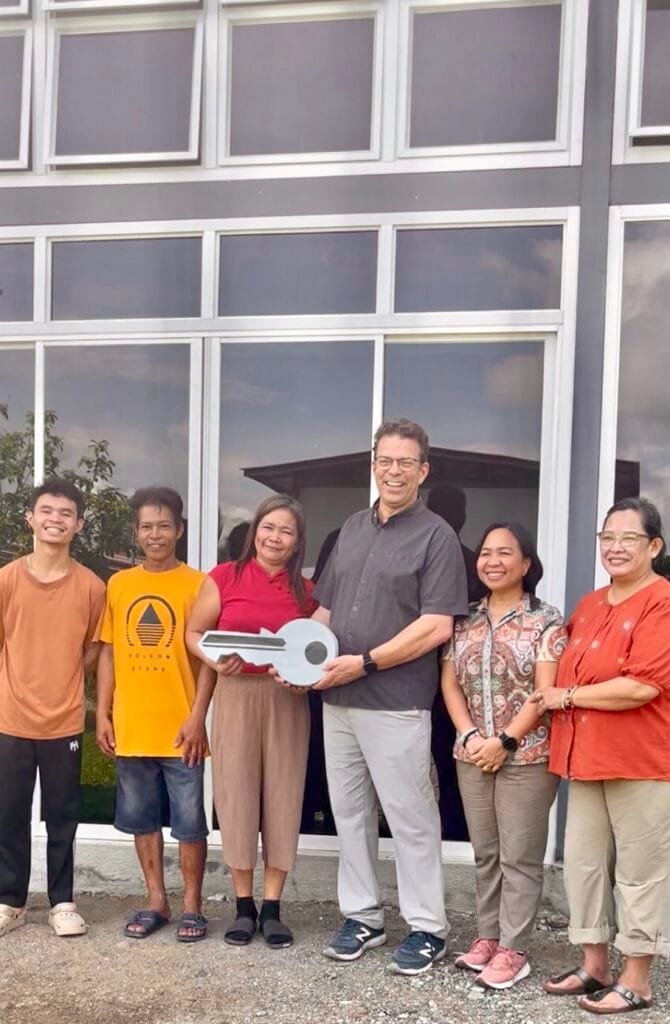
Afterwards, they returned to Davao City for a hybrid lunch meeting with the PBCI Board of Trustees—where practical realities and long-term vision found common ground. Finally, Doug, Joji, and the author (Lakan Sumulong / Dann Pantoja) sat together over coffee—less about programs, more about shared callings that transcend jobs, borders, and time.
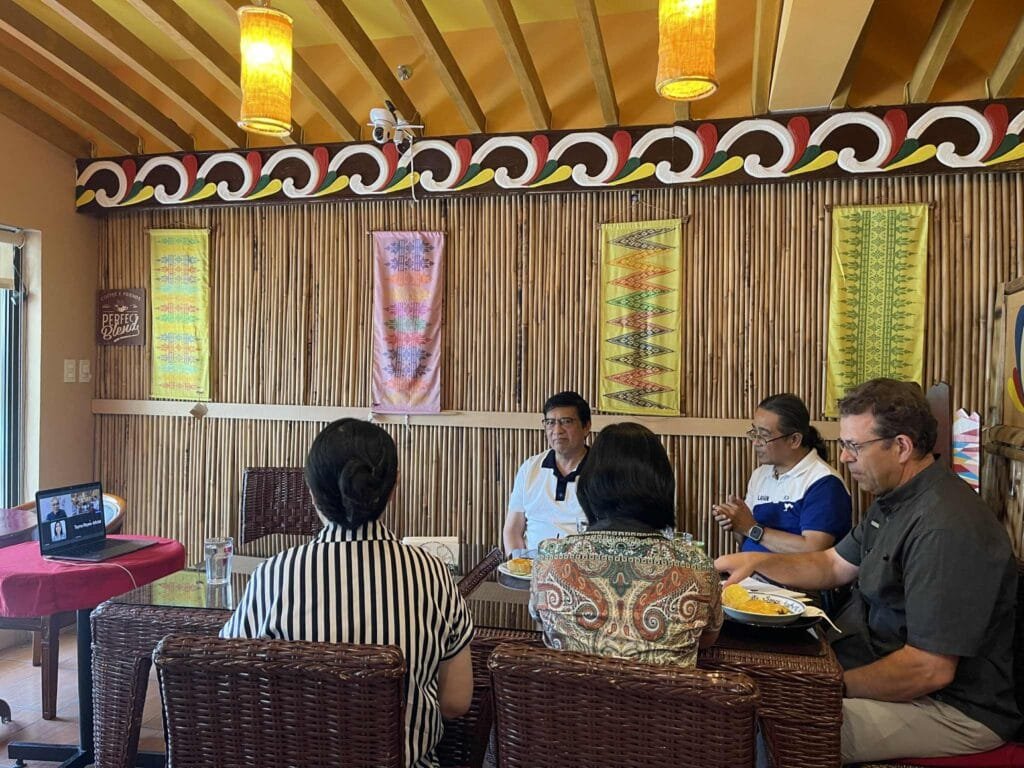
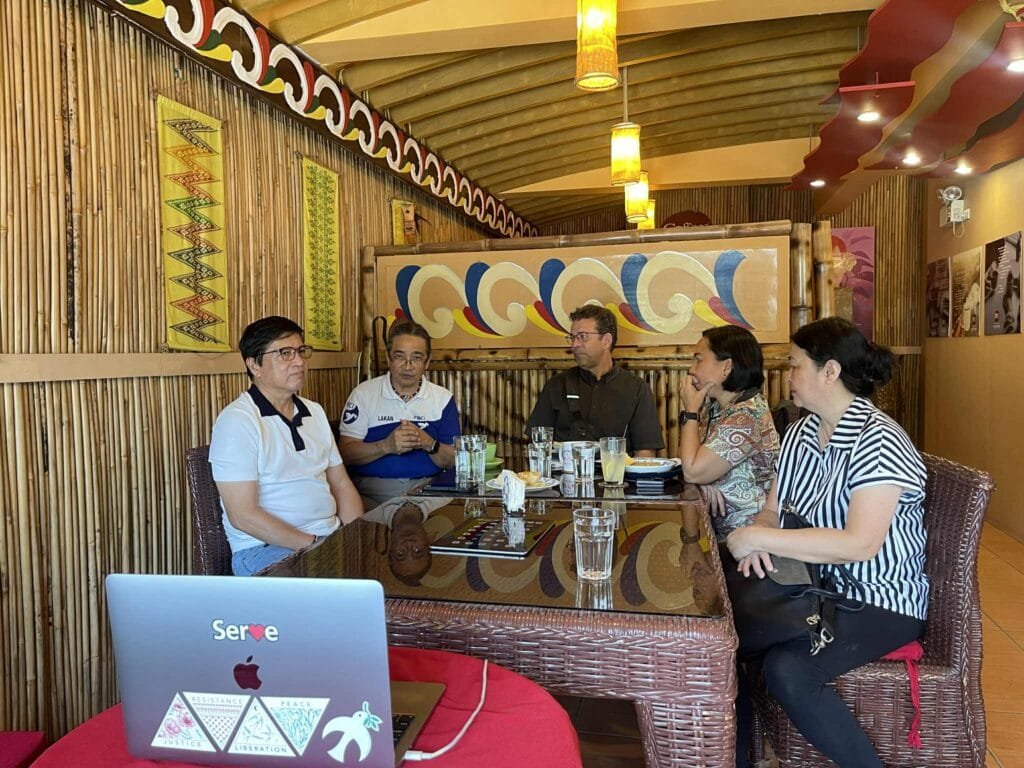
A Pilgrimage of Companionship
This visit wasn’t merely a series of formal engagements—it was a pilgrimage of listening, presence, and relational trust. Doug’s presence as the national executive of MCCanada wasn’t that of a distant backer, but of a companion, affirming that genuine peacebuilding is walked together—one conversation, one shared meal, one act of peace at a time.
Why This Matters
Doug Klassen embodies MCCanada’s enduring commitment to inclusive development through social entrepreneurial initiatives—from Coffee for Peace’s livelihood-based bridge-building to Malipayon Peace Hub’s empowerment of Indigenous women and youth. His three-day journey epitomizes the values at the heart of this partnership: humility, solidarity, mutual learning, and transformational companionship rooted in shared faith and hope.
